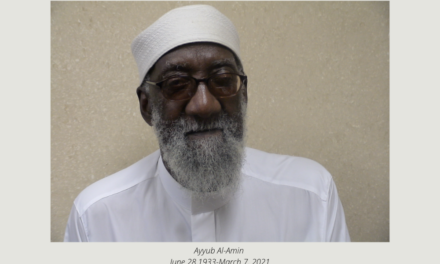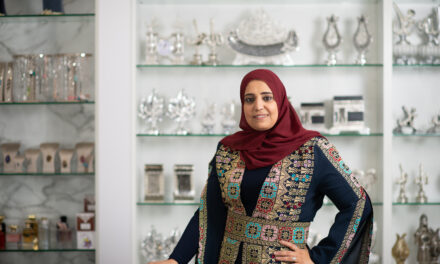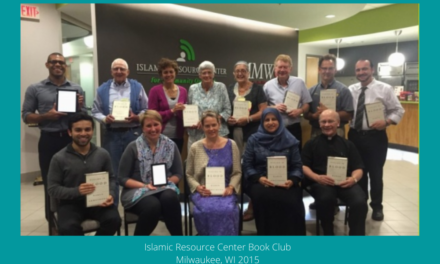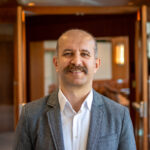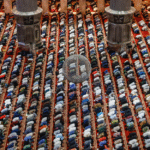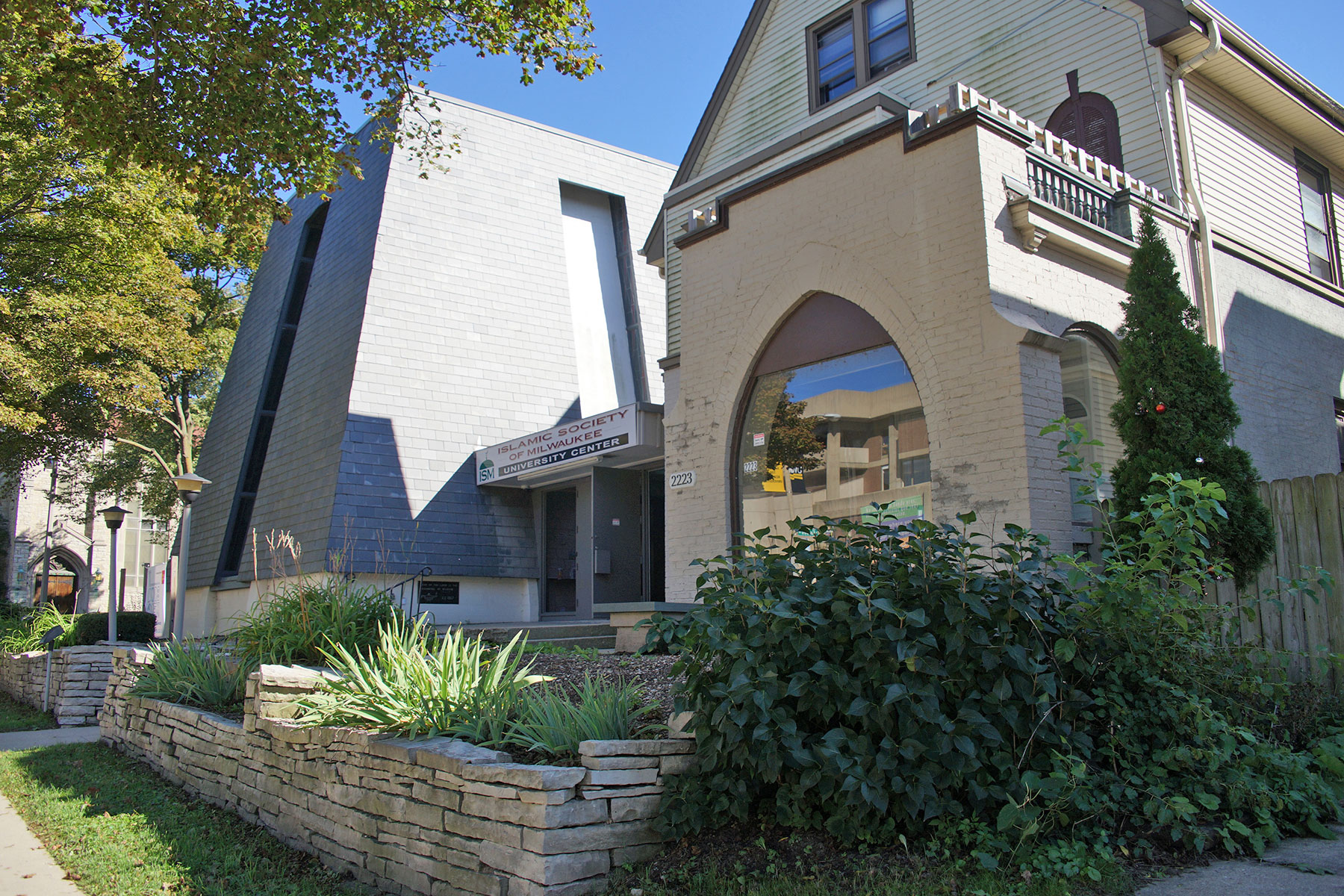
Islamic Society of Milwaukee University Center at 2223 E. Kenwood Blvd., Milwaukee, has served as the primary place of worship for the Muslim community and Muslim students on Milwaukee’s East Side.
“Muslims do not worship Prophet Muhammad,” explained Dr. Zulfiqar A. Shah, religious director of the Islamic Society of Milwaukee, during a question-and-answer session Jan. 26 at the ISM University Center, 2223 E. Kenwood Blvd., Milwaukee, to an audience of about 30 Muslims and non-Muslims. “Prophet Muhammad is not divine. He is the servant of God. He is a human being who can never come close to the divinity of God. He is not to be worshiped.”
On the last Thursday of each month, ISM University Center hosts “Introduction to Islam,” a program opened to people of all faiths and backgrounds interested in learning more about Islam. A light buffet dinner is provided from 6:45 – 7 p.m. followed by a lecture and Q & A session led by a religious scholar.
As ISM religious director, Dr. Shah is responsible for guiding Greater Milwaukee’s Muslim community as it strives to follow Islam and understand the Qur’an, along with the hadith and sunna, the teaching of the prophet and the precedent established by the prophet’s way of life. He also serves as executive director and secretary general of the Fiqh Council of North America, the highest Muslim juris body on the continent, which answers questions and develops policy papers regarding Islamic law (shari’ah) in the North American context.
In addition, Shah is a religious scholar with numerous research papers and books on a wide range of legal and theological issues. He has bachelor’s and master’s of arts degrees with honors in comparative religion from International Islamic University in Islamabad, a public research university that brings together major religious scholars from the East and West, and a doctorate degree in theology and religious studies from the University of Wales.
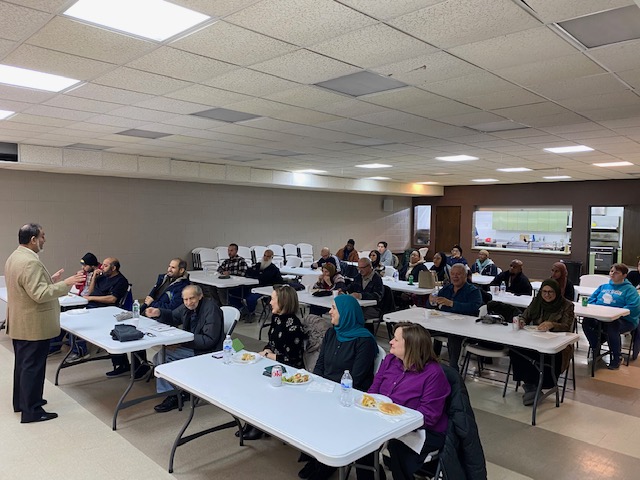
“Introduction to Islam” is an ongoing program for people of all faiths and backgrounds interested in learning more about Islam.
“Many non-Muslims get their information about Islam through social media and the news, and they are quite often biased,” Shah said in an interview after the program. “They depict the Muslim religion as something violent, anti-progress and anti-development.”
In response, the ISM Outreach (da’wah) Committee decided to offer a course to explain the basics of Islam, he said. “We want to discuss Islam from authentic sources so non-Muslims can see the commonalities as well as the differences between Islam and other faith traditions.”
Mohammad Kher Heder, M.D., a representative of the Outreach Committee, said the program was proposed in response to a need. “Questions come to the mosques from people of all ages wanting to know more about Islam. We decided it would be best to offer this informational program at a central, convenient location, and chose the ISM University Center.” The program has received interest from Muslim students and their non-Muslim friends, as well as university staff members, he added.
A Christian woman who attended the January meeting said everything she had heard about Muslims from the news created fear, that they are suicide bombers and were behind the death and destruction of 9/11. However, she has recently met Muslims and has found they do not fit the stereotypes she previously held. Curious, she attended the Introduction to Islam class to learn about Islam from someone other than the media, she said.
Muslim’s approach to da’wah
Holding a lecture titled “Introduction to Islam” and inviting non-Muslims may make some suspect the goal of this program is to convert people to Islam. In fact, the Arabic word da’wah means “making an invitation.” The term is used to describe how Muslims teach others about their beliefs and practices.
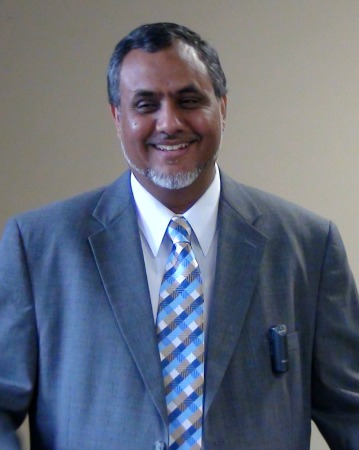
Zulfiqar A. Shah, Ph.D., Religious Director of the Islamic Society of Milwaukee
However, in Islam it is believed that the fate of each person is in God’s hands, “so it is not the responsibility or right of individual Muslims to attempt to ‘convert’ others to the faith,” according to Learn Religions, an interfaith informational website. “The goal of da’wah, then, is merely to share information, to invite others towards a better understanding of the faith.” Muslims are also engaging in da’wah when they help Muslims, as well as non-Muslims, learn how to worship God and live an Islamic lifestyle, the website explains.
“Every organization wants to share its vision, actions and experiences with others,” Shah said. “We Muslims do also. We are encouraged to share the goodness, moral aspects and positivity of Islam with others.
“Our approach is to share with the audience in very logical and rational ways,” he said. “We address ‘What is Islam? What values does it share with other faith traditions?’
“We do not use social pressure or fear to try to convince people of anything,” Shah added. “We do not impose our ideas upon others. We let others think for themselves and ask questions. We want to engage in rational discourse about moral choices. Islam is a way to connect people with a higher power that can become their moral compass and guide them through their daily lives.”
Shared beliefs and values
On that cold, snowy Thursday evening in January, Dr. Shah talked about the commonalities between Islam, Christianity and Judaism. Some people think learning about Islam is “jumping from one world to another world,” he noted. That is because they are not aware of the commonalities between Judaism, Christianity and Islam, he said. “Learning about Islam is more like modifying a belief system and lifestyle we share, and it is a modification towards betterment.”
Judaism, Christianity and Islam all hold the 10 Commandments as guides to morality, Shah said. Historically, a Muslim is someone who submits to God’s higher authority and follows these laws, which lead us to peace with our neighbors, he explained. In that sense, “there were Muslims before the time of Prophet Muhammad.”
A distinction today is the understanding that Muslims hold a worldview learned from the Qu’ran and Prophet Muhammad, Shah said. “Part of the Islamic faith is to believe in the last scripture, which is the Qu’ran, and Prophet Muhammad, but also in the previous prophets and previous scriptures. From the Islamic perspective, there is what we call ‘the prophetic tradition.’ That tradition started with Adam and was concluded by Prophet Muhammad, peace be upon him.
“The Qu’ran is not something new,” he continued. “Islam is not a new religion. Islam is reviving or preserving the original message of God sent from Adam and to all the prophets.
“Islam is a pluralistic and very inclusive religion that establishes a connection to the moral and theological foundation (of the previous scriptures and prophets). Whosoever is closer to this message is closer to Islam.”
